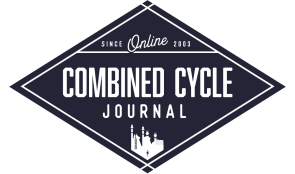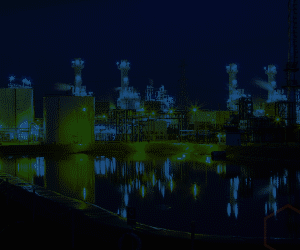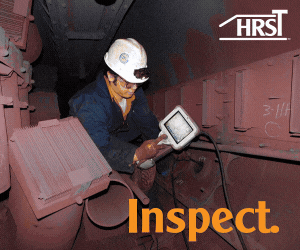
2024 conference overview. The Australasian Boiler and HRSG Users Group (ABHUG) meets annually to review and examine significant developments related to heat-recovery steam generators and closely-related conventional fossil boiler technology and issues. High-energy piping, valves, cycle chemistry, and regulatory issues are also explored.
The annual meeting for 2024 was held December 3-5 in Brisbane, Australia, chaired by Bob Anderson, Competitive Power Resources (US) and Barry Dooley, Structural Integrity (UK).
ABHUG is supported by the International Association for the Properties of Water and Steam (IAPWS) together with local National Committees. It is held in association with the European HRSG Forum (EHF) and the US HRSG Forum (HF). Announced recently, this suite of events and global content will expand further in 2025 with HRSG Forum América Latina, September 23-25, in São Paulo, Brazil.
The first Australasian HRSG Users Group meeting (known at the time as AHUG) took place in 2009. The 2024 ABHUG event attracted 90 participants from Australia, New Zealand, Canada, UK, and US. There were 26 prepared presentations.
Detailed discussions on thermal transient issues with attemperators, condensate, superheater/reheater drain management, and steam-turbine bypass operation are always a highlight of these HRSG conferences, revealing common problems and areas needing improvement based on international operating data and research. Statistics on cycle chemistry follow the same pattern, with the goal of increasing the availability of both conventional steam and combined-cycle plants.
As noted by Dooley post-conference, “a follow-up to the chemistry statistics review provided detailed information on sampling, monitoring, and analyzing corrosion products. Here the new IAPWS decay map provides the first indicator to validate whether a plant’s chemistry is optimized and provides a tool to quantify any benefits from an application of a film-forming substance.”
He continued: “With the growth of renewable energy forcing a plant into more and more flexible operation, the benefits from understanding and then controlling the factors leading to corrosion-product transport will be very significant.”
Recent advances in drone capability were also presented at ABHUG including new video capabilities, various testing methods and accomplishments, thermography, and accurate spatial measurements.
The use of DCS data from station instrumentation was examined to assist troubleshooting of in-plant failures ranging from superheaters to desuperheaters to high-pressure pipe runs, reminding participants of the benefits of readily available information often not adequately analyzed.
There were a number of discussions on tube failures, including an important presentation on focused corporate-wide reduction programs to prevent repeat failures and increase fleet-wide plant availability.
Two presentations on internal HRSG tube inspections revealed capabilities of both viewing and removing severe internal deposits. Interesting discussions then explored further developments and specific technology refinements.
Regarding film-forming substances, Dooley’s review included the following: “A detailed update was provided on the latest experience and knowledge on these substances which not only included the latest science and application results but also reminded the participants that failure/damage can result if the application does not follow a detailed review of current plant chemistry before application. It was great to see some results from Australian university research on FFS which supplement field trials in advancing the understanding of condensation and heat transfer.”
Information was also provided on successful field tests of a new method to maintain high-pressure drum pressures during long-term wet layup using electric heating of external downcomer piping. Keeping HRSGs warm in this way avoids the large thermal fatigue damage accumulation in the HP drum associated with cold startup. Such units also can avoid air intrusion, enjoy more rapid restart, stable water chemistry, freeze protection, and reduction in pitting corrosion during long-term layup.
A number of specific case studies were presented and examined. One, for example, looked at damage caused by undrainable water accumulated in main steam pipework, leading to long deadhead sections upstream of isolation valves.
In another, looking at the fairly new technology of generating pressure waves to clean the gas side of finned tubes, details were presented on current in-depth testing to evaluate any propensity for component damage.
With international technical experts attending, solution sharing is a strong conference benefit for both users and service providers.
Looking back at this interactive 2024 event, Dooley summarized: “The excellent number of steam generator owner/operators at the conference was extremely pleasing as this enabled the information that was shared to be transferred to a wide range of plants, which must ultimately benefit the industry and the consumer.”
An exhibition area was also provided and included Duff and Macintosh/Sentry, Flotech Controls, HMA Instrumentation, Intertek, Precision Iceblast Corporation, RTR, and Swan.
Sponsors for ABHUG 2024 were HRL, Swan Analytical Instruments, and TLG Engineering.
The event was organized by Mecca Concepts Pty Ltd, Australia. Combined Cycle Journal is the media partner.
A more in-depth review of this conference will follow this year in CCJ.
HRSG calendar. The next meeting of ABHUG will be in Brisbane in November 2025.The 11th European HRSG Forum will take place May 13-15, 2025, in Prato, Italy. The 2025 HRSG Forum (US) will take place July 21-25 in Houston. HRSG Forum América Latina will follow September 23-25, in São Paulo, Brazil.
For more information on the current and expanding suite of HRSG conferences, please contact Barry Dooley (bdooley@structint.com or bdooley@IAPWS.org) or Bob Anderson (anderson@competitivepower.us).
All events also will be announced on the www.ccj-online.com calendar and within Combined Cycle Journal. CCJ





